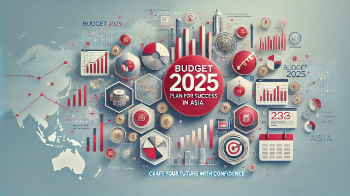
With rising living costs and economic uncertainty, having a solid budget is more important than ever. A well-structured budget helps manage expenses, save for the future, and reduce financial stress.
Budgeting is simply creating a plan for how you will spend your money. It helps prioritize financial goals, avoid debt, and build wealth over time.
This method allocates:
Zero-based budgeting requires you to assign every dollar of income to a specific expense, savings, or debt category. At the end of the month, income minus expenses should equal zero. This method ensures mindful spending.
This method involves setting spending limits for categories and keeping cash in separate envelopes. When the envelope is empty, no more spending in that category. It’s great for controlling impulse purchases.
Apps like Mint, YNAB (You Need a Budget), and PocketGuard help track expenses, categorize spending, and set financial goals automatically.
Before spending on anything else, transfer a percentage of your income to savings. This ensures you consistently build wealth over time.
Identify and eliminate unnecessary subscriptions, switch to cheaper service providers, and cook at home instead of dining out to save money.
An emergency fund should cover 3-6 months of living expenses. This prevents financial setbacks from unexpected medical bills, job loss, or car repairs.
For those with irregular income, base your budget on your lowest expected earnings. Save more in high-income months to cover lower-earning periods.
Instead of being caught off guard by big expenses, set aside small amounts each month for upcoming costs like vacations, car repairs, or holiday gifts.
As income increases, avoid increasing expenses unnecessarily. Stick to your budget and allocate extra income to savings or investments instead.
Use the Debt Snowball Method (paying off small debts first for motivation) or the Debt Avalanche Method (paying off high-interest debt first to save on interest).
A budget is not set in stone. Review it monthly, adjust for new expenses, and track progress toward financial goals. Conclusion: A Budget is Your Financial Roadmap
Budgeting gives you financial control and peace of mind. No matter your income level, following the right budgeting strategies can help you save more and spend wisely.
Share This News